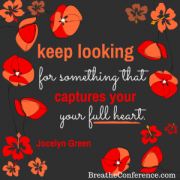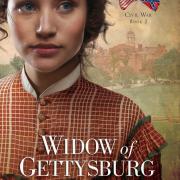[[{"type":"media", "view_mode":"media_large", "fid":"945", "attributes":{"class":"media-image alignright size-medium wp-image-1214", "typeof":"foaf:Image", "style":"", "width":"194", "height":"300", "alt":"Widow cover 3 hi res"}}]]With the official release date for Widow of Gettysburg right around the corner, I thought it would be fun to share with you an exclusive inside look at some of my inspiration for a few different aspects of the novel! NEWSFLASH: We interrupt this blog post to notify you that Widow of Gettysburg is now FREE for Kindle and Nook! 1) Hero Cuteness As I was reading through the manuscript one last time, the following passage (my very own words) made me want to gag.
She raised an eyebrow. He smelled clean, and his face was freshly shaven. His oak blonde hair was combed into place, except for a lock that fell on his forehead.
Seriously? A lock that fell on his forehead? There must be some unwritten rule that the hero must always have this wayward lock of hair. It's so trite. How did I actually put that in there?
[[{"type":"media", "view_mode":"media_large", "fid":"946", "attributes":{"class":"media-image size-medium wp-image-1333", "typeof":"foaf:Image", "style":"", "width":"249", "height":"300", "alt":"cowlick crop"}}]] Nice shot of the double cowlick from this past winter
Those were my thoughts as I sat on the couch, marking up the manuscript with one hand, and scratching my four-year-old's back with my other hand. Then I looked at my son. He is just so CUTE! He doesn't have a lock of hair. He has a double cowlick that makes his hair stick up like a little dorsal fin! Hmmmmmm...... My red pen hovered above my page as I thought for a moment. Then I changed the above quote to the following:
She raised an eyebrow. He smelled clean, and his face was freshly shaven. His oak blond hair was combed neatly into place, except for a stubborn swirl of hair splaying up in the back. "So, are you well?" His eyes skimmed over her as he passed a hand uselessly over his cowlick. . . .
[[{"type":"media", "view_mode":"media_large", "fid":"858", "attributes":{"class":"media-image size-full wp-image-1335 alignright", "typeof":"foaf:Image", "style":"", "width":"250", "height":"300", "alt":"Cute Ethan and dryer crop"}}]]I like the new version much better. And now, just for fun, I'm going to share with you my favorite cowlick picture of my son ever, at right. He was keeping an eye on his blankie in the washing machine. He's two years old, here. Enjoy. :) 2) The Reporter's Intrusive Thoughts One of the characters in Widow of Gettysburg is Harrison Caldwell, a war correspondent for the Philadelphia Inquirer. He's been covering battles since the beginning of the war, which means not only does he witness horrific sights, but he writes the stories about it, which is like reliving it. He begins to have what we call today intrusive thoughts. They are not flashbacks, or daydreams, or nightmares, because he is fully awake, yet has these disturbing visions from time to time. Here is a snippet from the very end of Act Two in the novel:
Unbidden, the faces of men wounded and killed at Antietam, Bull Run, and Fredericksburg passed before his eyes, a cadre of ghosts he'd learned to live with. Gettysburg would add another host to their number. Eyes squeezed shut, Harrison clenched a thatch of hair and grasped for what was left of his decomposing sanity.
Later in the novel he sees some boys on the street and his mind plays a trick on him, so he sees their limbs getting blown off. Dark, right? So where did I get this inspiration? This one was easy because it happened to me, and still does from time to time. During my research for this novel, I read so many accounts of the battle of Gettysburg, I began having battlefield-inspired nightmares. OK, that was easy to fix-I just had to read something or watch a TV show before bed to get my brain to switch gears before sleeping. But I knew it wasn't working when I went to the water park with my family last summer. Here's me with my daughter, looking very normal from the outside.
[[{"type":"media", "view_mode":"media_large", "fid":"859", "attributes":{"class":"media-image aligncenter wp-image-1339", "typeof":"foaf:Image", "style":"", "width":"590", "height":"442", "alt":"waterpark"}}]]
But here's what was happening behind that smile. I saw the young men who were life guards, and my brain dressed them in blue or grey uniforms, then I watched as an arm or leg was blown away. Soon after that, I decided I'd done enough research and it was time to write my story. But I knew that if this was happening to me after only being immersed in written accounts, how much more so would this be the case for the reporters who were immersed, literally, in the sights, sounds, and smells of human wreckage. I've also interviewed several of today's generation of combat veterans, and they have told me about similar intrusive thoughts they've had after combat.
Charles Carleton Coffin
Before I leave the topic of the hardships and mental state of the war correspondent, I would love to share this quote from you from Charles Carleton Coffin, the Boston Morning Journal reporter who was at Gettysburg, and a minor character in my novel. He once wrote:
But let me say if those who envy the war correspondent were once brought into close contact with all the realities of war — if they were obliged to stand the chances of getting their heads knocked off by an unexpected shell, or bored through with a minie ball, — to stand their chances of being captured by the enemy, — to live on bread and water and little of it — to sleep on the ground, or on a sack of corn, or in a barn with the wind blowing a gale and the snow whirling in drifts, and the thermometer shrunk to zero,— and then after the battle is over and the field won, to walk among the dying and the dead and behold all the ghastly sights ... to hear all around sighs, groans, imprecations and prayers — they would be content to let others become the historians of war.
This reporter often shook from too much caffeine--another trait I gave my fictional character, Harrison. Now, do not be alarmed! My renditions of the battle and aftermath are tame in comparison to the accounts I read in my research! I leave plenty to the imagination. 3) True Love I saved the best for last! At some point during the writing of Widow of Gettysburg, I was rummaging around through piles of paper on and in my desk and came across a water-stained paper with a handwritten draft of a poem on it. I am sure I had never seen this before. My husband wrote this before we were married but never showed it to me! When I read it, I was stunned. Here is a small piece:
[[{"type":"media", "view_mode":"media_large", "fid":"947", "attributes":{"class":"media-image aligncenter wp-image-1346", "typeof":"foaf:Image", "style":"", "width":"717", "height":"408", "alt":"poem"}}]]
Obviously, I loved those words, and asked Rob's permission for me to put them in one of my character's mouths near the end of the book. He said I could. And I'm happy to report that he really does still fight for my heart even after it's already won.
Now, I wasn't planning on sharing with the world that the speech at the end of the novel was inspired by my own husband's poem--until I learned that RT Reviews gave Widow of Gettysburg 4.5 out of 4.5 stars and named it a TOP PICK for June. :) Since Romantic Times (aka RT) loved it, I figured it was safe to reveal the source of my inspiration.
Here we are somewhere in Philadelphia, in the spring of 2003. This was during our engagement and probably right around the time he wrote the poem. He ended up writing out a beautiful poem by Christina Rossetti and framing that for me instead, but his original poem was at LEAST as good, in my completely biased opinion. :)
If you want to see what a difference 10 years of married life makes, see our family picture here. I actually combed my hair and put make-up on for the family pic, a real treat for you since I'm totally windblown in the two pics in this post!
Hope you've enjoyed this inside scoop at some of my "novel inspiration"! Now it's your turn. Even if you aren't a writer, what, or who, inspires you?
*Widow of Gettysburg is available now at online retailers, and releases at bookstores May 1!


